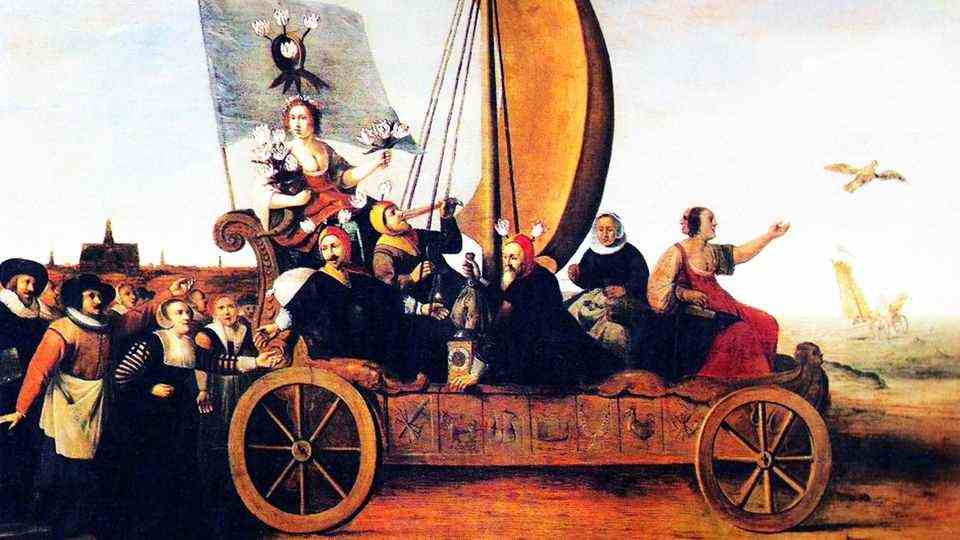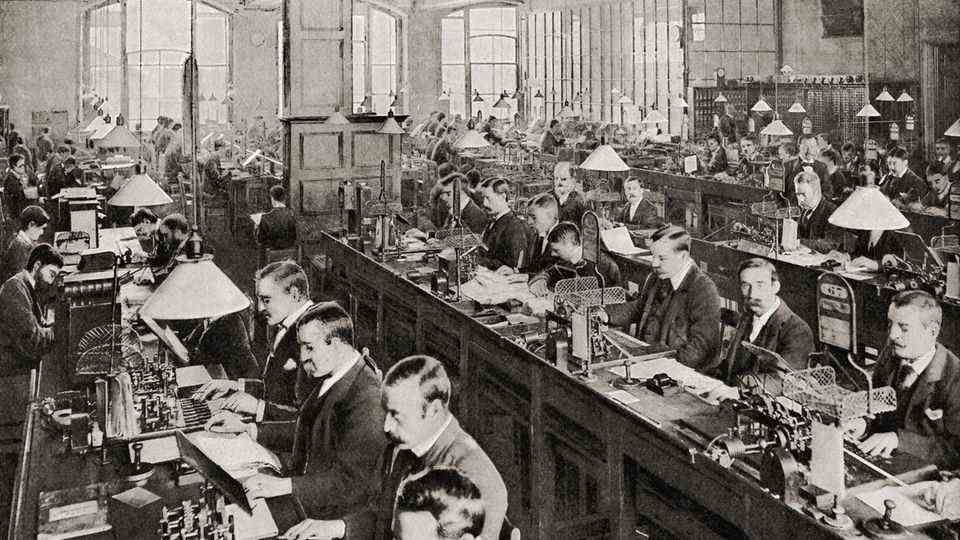Work through the ages
Work spoils character – why work was frowned upon in ancient Greece
The painter Raffael made the “School of Athens” for the Vatican. A number of ancient philosophers are depicted.https://de.wikipedia.org/wiki/Die_Schule_von_Athen
© Commons
The ancient Greeks produced all sorts of great things. Democracy, great mathematicians and philosophers, but they did not invent work. Because the ancient citizen did not work when he was respectful of himself. Others could do that.
Ancient times were a great time. Discoveries were made in medicine that we still benefit from today. Philosophers tried to fathom the meaning of being and raised questions that we can still ponder and argue about today. Our political system, democracy, that is, the rule of the people, was born in antiquity. And everyone who tormented themselves through math lessons at school despaired a little of the Pythagorean theorem.
It is amazing that a time that is well over 2000 years in the past is still so present. And wisdom, insights and solutions from then still apply today. But there is one thing that the fine gentlemen of ancient Greece certainly did not invent in today’s sense of the word: work.
Work is considered morally inferior
In ancient times, work was an ambivalent topic. Because slogging for a living was considered gross. “In antiquity, work is closely related to the character of the worker. Anyone who is forced to engage in low-level occupations, especially financial transactions, is considered to be morally inferior,” said the following Michael Stefan Aßländer, Professor of Social Sciences. It bundles three basic theses for understanding the topic of work in antiquity: 1. Work is unworthy of a free man; 2. There is a clear hierarchy of different activities; and 3. Inferior work spoils character.
The logic of the “free” man who would become unfree through work is rooted in ancient society. “In pre-Christian Athens there were sometimes five slaves for every free citizen who sat on the council, politicized and philosophized and despised working with his hands”, writes the Germanist Hans-Joachim Hahn. “Marcus Tullius Cicero blatantly expressed his dislike of workers: ‘Ordinary is the livelihood of the hired worker, which we pay with our hands for mere work. All craftsmen have a vulgar trade. “ Work with your hands? For the free citizen, this is not an appropriate activity. “It must be possible for a free man to be able to live with decency and dignity from his ‘income’ without being directly dependent on work,” writes Aßländer. “The ideal of antiquity was the ideal of the free man, who could also take care of the interests of the polis or the state without material worries, and who played a responsible role in shaping the community in jurisprudence and politics. Free means both free from material worries, as well as being free from the tutelage of others. But anyone who works for others is subject to their orders. ” Even the famous one Philosopher Aristotle rejected wage labor: “As a mundane work … one has to understand that which makes the body or the soul or the intellect of the freeborn unsuitable for dealing with virtue and exercising it. That is why we call all crafts mundane that bring the body into a bad condition, and also wage labor. For they make thinking restless and low. “
Work in antiquity: craft softened
Plato calls even for legal measures against craftsmen “in order to maintain the morale of the citizens”, so Aßländer. According to Xenophon , a pupil of Socrates, the craft led to effeminacy, because it forces you to sit down, so Aßländer. And when the body becomes effeminate, the soul also suffers. In addition, craftsmen would only be interested in making money – and not in national defense. And so be a worse citizen.
Peace and quiet as an ancient ideal – instead of physical exertion. All the unpleasantness was taken over by slaves who were classified not as humans but as things, or by artisans who were viewed as inferior.
This rather negative attitude towards work persists for a long time. “However, from the 5th century onwards, Christianity led to a decisive reassessment of work,” said Aßländer. “According to the Judeo-Christian tradition of the Old Testament, work is now reinterpreted as the cumulative atonement of the human race for the Fall. As a punishment from God, man is now condemned to earn his daily bread in the sweat of his brow.” Christianity not only paved the way for different valuations of head and hand work. “Both activities are now positively documented. After all, Jesus and his disciples were craftsmen and fishermen before they began to preach. Characteristic of the Christian invitation to work is the well-known sentence of Paul: ‘Whoever does not want to work should not eat’ “, writes Federal Agency for Civic Education. However, this did not mean that physical work was upgraded in the long term.
With the development of the early medieval class society, craftsmen and farmers were clearly placed under the clergy who worked spiritually. “With the rediscovery of the Greek philosophers and their teachings by the church fathers, however, the work soon fell behind again and the clear statements of the founders were forgotten: the ‘spiritual class’ of priests and church dignitaries rose above the ‘secular class’ of workers and craftsmen and divided people up into classes with different levels of value “, says Hans-Joachim Hahn. “The power of change of the Christian gospel was effectively stifled.”
Also read:
Working in the Middle Ages: Was there really so much toil back then?
When Germans were the refugees – and became successful entrepreneurs
Heroin in tampons and morphine for toddlers – when hard drugs were part of everyday life





